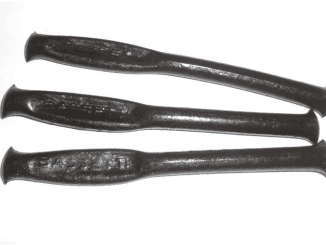Have you ever wondered how long that packet of salami or turkey slices can actually last in your fridge? Deli meats are a convenient, tasty option for sandwiches, snacks, and more. But as handy as they are, they come with a limited shelf life, and consuming them past their prime can pose health risks. Whether it’s fresh from the deli counter or pre-packaged, knowing when to discard deli meat is key to keeping yourself safe. In this guide, we’ll cover everything you need to know about the shelf life of deli meat, the signs of spoilage, and when it’s best to toss it.
How Long Can Deli Meat Last in the Fridge?

According to the U.S. Department of Agriculture (USDA), deli-sliced or store-prepared lunch meat should be consumed within three to five days once opened. If you’ve got unopened vacuum-sealed packages, they should be consumed within two weeks from purchase. These guidelines apply to all types of deli meat, whether it’s turkey, ham, salami, or roast beef.
However, these timeframes are based on proper storage conditions. To maximize freshness and safety, deli meats should be kept in the refrigerator at 40°F (4°C) or below. Refrigerating them promptly after purchase is essential, as letting them sit out at room temperature for even a couple of hours can accelerate bacterial growth, making them unsafe to eat.
Why Proper Storage of Deli Meat Matters
The way you store deli meat can significantly impact how long it stays good. The cold environment of a fridge slows down bacterial growth, but it doesn’t stop it entirely. If the meat is left out for more than two hours at room temperature, it becomes a breeding ground for bacteria like Listeria monocytogenes, which can cause serious health issues. The best way to store deli meat is in airtight containers or resealable bags to prevent air exposure, which can hasten spoilage.
Dr. Stephanie Seveau, a professor of microbial infection and immunity at The Ohio State University, emphasizes the importance of keeping deli meat refrigerated at the right temperature. “Deli meats must be kept below 40°F to slow bacterial growth,” she notes. Even though refrigeration helps, it’s not foolproof—always be mindful of how long the meat has been in your fridge.
How to Tell if Deli Meat Has Gone Bad
Spotting spoiled deli meat can sometimes be straightforward, but in other cases, it may not be as obvious. Here are some common signs to watch out for:
- Unpleasant Smell: If the meat emits a sour, off-putting odor, it’s a clear indication that it’s gone bad. Fresh deli meat should have a mild, fresh scent.
- Slimy Texture: A sticky or slimy film on the surface of the meat is a major red flag. This slime is often caused by bacterial growth and is a definite sign that the meat needs to be discarded.
- Color Changes: While deli meats naturally have variations in color, watch out for any significant changes, such as a dull gray or brown tint. For meats like ham or turkey, any greenish patches indicate spoilage.
- Visible Mold: Any appearance of mold—whether green, white, or black—means the meat has gone bad and should be discarded immediately.
However, not all bacteria leave visible signs. Listeria, for example, doesn’t always create changes in smell, taste, or appearance. For this reason, it’s crucial to follow the three-to-five-day rule for opened deli meat and to always discard it if it’s past the expiration date.
What Is Listeria and Why Is It a Concern with Deli Meat?

One of the most serious risks of consuming deli meat is contamination with Listeria monocytogenes, a bacterium that causes listeriosis. Although listeriosis infections are rare, they can be severe and sometimes fatal, particularly for vulnerable populations, such as the elderly, pregnant women, newborns, and immunocompromised individuals.
Listeria can grow even in refrigerated conditions, making it a significant concern when it comes to deli meats. While keeping deli meat cold can slow down bacterial growth, it won’t eliminate the risk entirely. Symptoms of listeriosis can include fever, muscle aches, nausea, and diarrhea, often appearing a few days to weeks after consumption of contaminated food. In severe cases, hospitalization may be required.
What About Pre-Packaged Deli Meat? Is It Safer?
Pre-packaged deli meats, like those from brands such as Boar’s Head or Oscar Mayer, offer a longer shelf life due to their vacuum-sealed packaging. However, once opened, they should be treated like freshly sliced deli meat and consumed within three to five days. Even though vacuum-sealing can protect against initial contamination, it does not eliminate the risk of bacterial growth once the package is opened.
Recent listeria outbreaks have involved several brands of pre-packaged deli meats, underscoring the importance of monitoring recall notices. Dr. Seveau advises, “Pay close attention to any recall notices involving deli meat, especially if it’s been linked to listeria. Discard it immediately if it’s on the recall list.”
How to Safely Handle and Store Deli Meat

Proper handling can extend the freshness of deli meat and reduce the risk of foodborne illnesses. Here are some tips to keep in mind:
- Store It Correctly: Keep deli meat in an airtight container or tightly sealed plastic wrap to minimize air exposure.
- Refrigerate Promptly: Always refrigerate deli meat as soon as you return from the store and avoid leaving it out at room temperature for extended periods.
- Use Clean Utensils: Always use clean utensils to handle the meat and avoid cross-contamination with other foods.
- Follow Expiration Dates: Even if the meat looks fine, always respect the expiration date on the packaging.
Conclusion: When to Discard Deli Meat
Deli meat is a versatile and convenient food option, but it does come with a short shelf life and potential health risks if consumed past its prime. The best rule of thumb is to use opened deli meat within three to five days and unopened packages within two weeks, always keeping them refrigerated at 40°F or lower. Be aware of spoilage signs, such as changes in smell, texture, and color, and never hesitate to throw out meat if you suspect it’s gone bad.
Remember, when it comes to deli meat, it’s better to be safe than sorry. So, if that salami has been lingering in your fridge for a week, it’s probably time to toss it!


